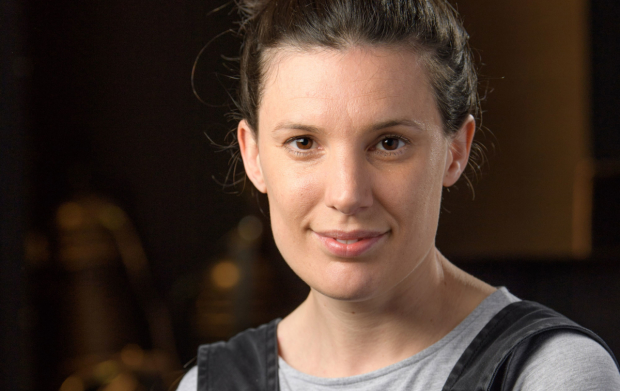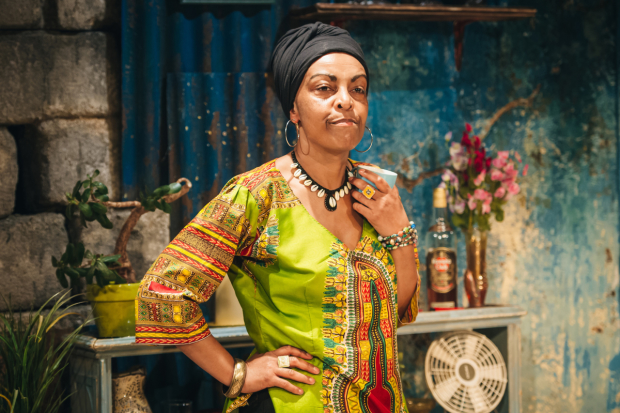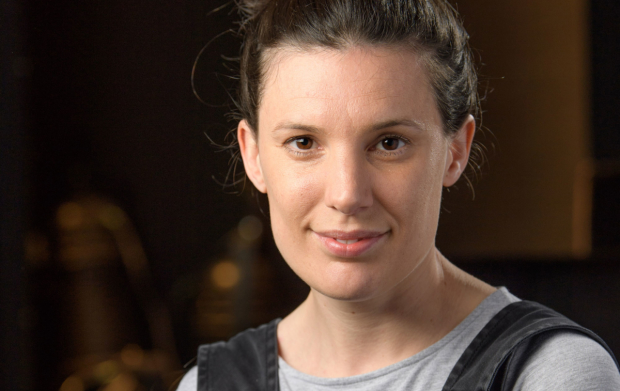Review: The Unknown Island (Gate Theatre)
Ellen McDougall is a director with vision. She has a real understanding of – and faith in – theatre as an imaginative and political space. That makes her an enticing prospect at the tiny Gate theatre, and her opening salvo, The Unknown Island, looks a lot like a manifesto.
Written by Portugese Nobel Prize winner Jose Saramago, it’s an ambiguous parable about an explorer in search of a new world. Adapted for a cast of four storytellers by McDougall and dramaturg Clare Slater, it imagines a corrupt kingdom ruled by a king who keeps his people at a distance, preferring to receive gifts than grant requests.
His routine’s interrupted by a man who demands, first, to speak to him directly, then to be given a boat to find himself an unknown island. Though the king insists none exists, he relents. His cleaning lady, intrigued by the explorer, leaves her royal post to join the explorer’s quest. They’ve no crew, no know-how and hardly any food – just each other, a boat and a dream.
Saramago’s story is enticingly elliptical, apparently determined to give interpreters the slip. It feels like a fable that blows off course, only without ever losing control. It starts as a political allegory, but corkscrews into more personal territory. It is, as a result, many things at once.
McDougall’s direction does more than it lets on. In a sealed-shut turquoise room, four actors (two men and two women) dressed in scarlets and crimsons tell the story collectively. They slip in and out of characters in a way that shuffles their identities. Sometimes, for example, two women plead the king to relinquish his power. Sometimes the sailors suggest a same-sex relationship.
It lets many meanings emerge, as if all of us share in each of these parts. In life, we're all kings on occasion. On others, we're cleaning ladies. McDougall lets us find our own path through a story that speaks of discovery and conservatism, power and privilege. As a measure of its multiplicity, it can be both pro- and anti-Brexit – a critique of blinkered insularity or a cry to jump into the unknown.
McDougall’s manifesto, I suspect, exists in the overlap of Saramago’s ship and her theatre. Both are humble spaces with scant resources, and both have set off in search of unknowns. When the two new sailors eat – a few olives, some bread and red wine – the cast extend the hospitality to the entire audience. It’s a beautiful way of bringing us on board, collapsing the distance between that ship and this space. Both, McDougall suggests, can bring people together.
But it’s as Saramago’s story builds to a dream sequence that McDougall’s meaning comes through. As the sailor sleeps, she fills the space with inflatable clouds and balloon animals, rose petals and rainfall. It’s cute and ironic; theatre’s version of a helium high. Just as the man’s dream changes his life – first his sense of his situation, then his actions on waking – so theatre can change the world. "Sleep is a skilled magician," Saramago writes. "It changes the proportions of things, the distances between them." Theatre, meanwhile, has been referred to as 'dreaming in public'.
McDougall and her designer Rosie Elnile make that manifest, but the point is that dreams linger on. By reshaping reality in our imaginations, we might just be able to reshape it for real. At the end, the actors throw open a window and the sounds of the city flood back in.
The Unknown Island runs at the Gate Theatre until 7 October.













